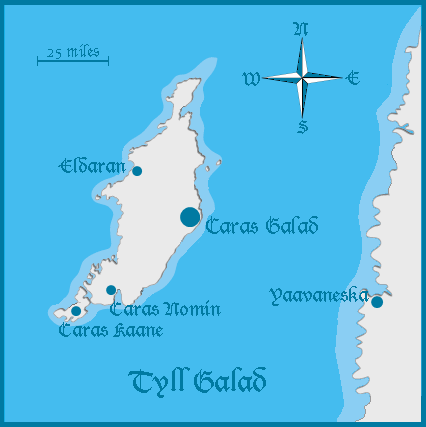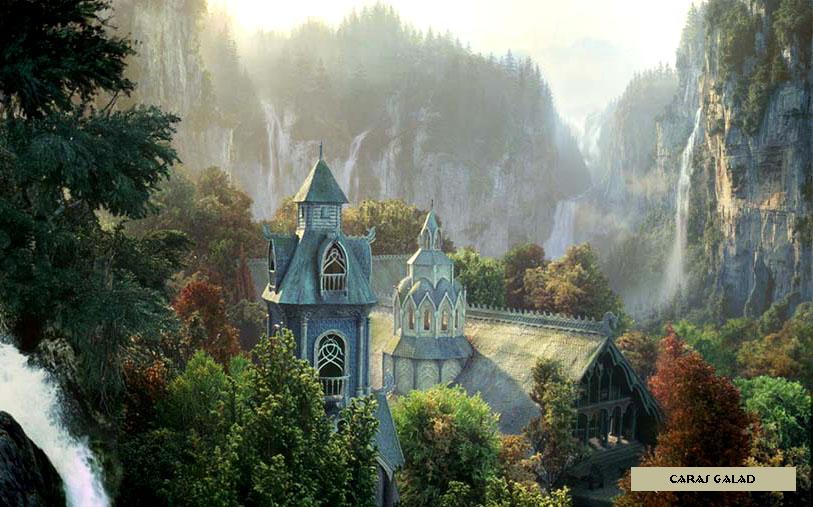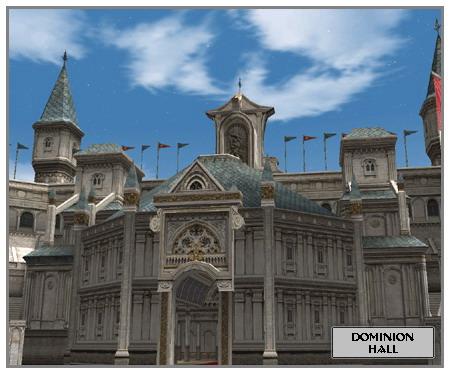Constitutional Dominion of Illuminated Spheres
Not every voyage was successful, not every contact friendly, of course. Many ships were lost in the conquest of space. For every twenty flights that set out, at least one met with some critical mishap; many didn't return at all. Even so, over the next 150 years Arvandor and Nexhan were joined by the humans of Arendu and Parsang, the ursinoids of Gwuryll and the multiracial worlds of Farach and Stonehollow in the ranks of spacefaring spheres. The region was slowly being mapped (although to the disgust of the spellship crews, an enormous number of DPs debouched beside the commonplace, and fairly useless, Red-class stars.)
However, this adventuresome, permissive policy of nonintervention suffered an irreversible revulsion when they first encountered the horrific and hideous brutality of the Illithid Hegemony. These powerful and aggressive beings regarded every non-illithid as either cattle or chattel, dominating or destroying the weak, the few, the isolated, and the complacent while bypassing only those too strong and vigilant to be conquered. They regularly conducted raids on worlds with sentient races, swooping down in their strange ships, incapacitating the inhabitants with their psionic powers, dining on the brains of the fortunate and herding the rest aboard, shackling them below deck in the dark, festering holds for transport back to the illithid home worlds, condemned to a life of cruel slavery.
To counter this and other threats to the safety and security of Known Space, the Constitutional Dominion of Illuminated Spheres was formed and the Constitutional Dominion Navy mustered to enforce the peace.
The conditions for membership in the Dominion were simple but inflexible. To be considered for membership a civilization had to be:
- Capable of understanding the fundamental principles of astromancy
- Willing to comply with Dominion regulations as they applied to interspheral relations
- Possessing some resource or cultural characteristic worthwhile to the Dominion or its member worlds.
(compliance to be verified by the establishment or recognition and maintenance of a duly-appointed and authorized body or individual capable of speaking for the world and ensuring the populace, and all governmental entities, will comply with all Dominion regulations)
However, as the many disparate cultures tried to meld into a cohesive governmental entity, those seemingly simple regulations soon spawned a jus codex that filled a vast library and required a massive judicial system to adjudicate. At the present time the Dominion Court of Interspheral Justice (DCIJ) has three separate branches:
- The Interspheral Court of Justice (ICJ), the supreme court that settles disputes between spheres or planets; the highest authority to which a case can be appealed
- The Interspheral Court of Criminality (ICC), a court that prosecutes individuals for crimes outside planetary or spheral jurisdiction, such as piracy, interspheral racketeering and so forth
- The Interspheral Court of Arbitration (ICA), a court that administers cases arising out of interspheral treaties, including bilateral and multilateral investment arrangements and other agreements.
The laws the courts adjudicate are enacted by the Grand Council, an assembly of representatives from the member spheres tasked with ensuring interspheral peace and security and encouraging cooperative and prosperous associations.
The core of the Council are the Charter Members. Led by Arvandor, the Prime Member (whose representative is always the First Consul who presides over the session and establishes the agenda that will be discussed) Arendu, Farach, Gwuryll, Nexhan, Parsang and Stonehollow wield enormous power. No legislation can pass if any of the Seven vote 'Nay' (although votes do not have to be unanimous; an abstention is often used to withhold support without actually prohibiting a piece of legislation.)
Full Members Blackhollow, Caroon and Yseth have the right to vote, but a Nay from them is not tantamount to a veto.
Associate Members Fanalor and Kethlath can address the Council, but, with one exception, have no vote, and Probationary Members are welcome to observe the legislative body, but have neither voice nor vote.
Finally, presiding over the government in an executive capacity, is the Speaker to the Spheres and Supreme Commander, who has sole authority and responsibility for the daily administration of law. Every fifty years the Grand Council elects a candidate to this demanding position, and in this instance only all members--Charter, Full and Associate--have an equal vote. So far every Speaker has been Arvandorian and elven, but there is no law mandating that restriction. The seat of governance for the Dominion is on Arvandor in Tyll Galad.
The capital is Caras Galad, the City of Radiance, where the Grand Council meets and the Speaker governs.
The courts are located in Dominion Hall in Caras Nomin, the City of Wisdom.
Nearby, on Tolai, is Caras Kaane, the City of Valor, Headquarters of the Constitutional Dominion Navy. Eldaran is home to the shipyards where the best ships in Known Space, and perhaps the entire galaxy, are made. On the mainland is Yaavaneska, Havest Home, the main port from which food and other necessities are ferried over to the islands.
The most powerful enforcement body in Known Space is the Constitutional Dominion Navy or CDN. Their authority is broad and sweeping, derived from the Speaker himself and backed by the Council, and extremely dangerous to challenge. They don't like to lose and have very long memories…
Motto: oioantha (Ever Watchful; alternate translation: Ever Vigilant)




